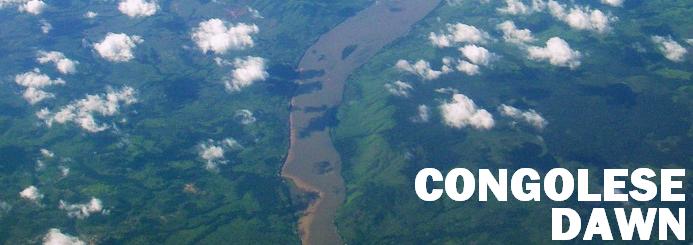 Last week, I was invited to speak at the Centre for Development and Emergency Practice’s Human Rights Film Festival, at Oxford Brookes University, following a screening of ‘The Greatest Silence: Rape in the Congo’. It is a powerful and shocking documentary made two years ago by Lisa F Jackson, who draws on her own experience as a rape victim, and I would highly recommend it although it is far from comfortable viewing. At one point a Congolese doctor describes how he thinks that each patient he sees has the most harrowing story imaginable, until he encounters the next, and the film is similar – each story, told firsthand, brings a fresh horror to what has gone before.
Last week, I was invited to speak at the Centre for Development and Emergency Practice’s Human Rights Film Festival, at Oxford Brookes University, following a screening of ‘The Greatest Silence: Rape in the Congo’. It is a powerful and shocking documentary made two years ago by Lisa F Jackson, who draws on her own experience as a rape victim, and I would highly recommend it although it is far from comfortable viewing. At one point a Congolese doctor describes how he thinks that each patient he sees has the most harrowing story imaginable, until he encounters the next, and the film is similar – each story, told firsthand, brings a fresh horror to what has gone before.It was difficult to find any glimmers of hope following such a distressing film, but I tried to highlight some of the remarkable work that Christian Aid’s partners are able to do, even in the war-torn East, to rebuild lives torn apart by sexual violence.
I told the story of Afua, who was abducted by Mai Mai militia in 2002 while out farming in the fields and was gang raped while being held at a military camp. She told Christian Aid’s partners that when the soldiers eventually left the area, she immediately sought out medical help. ” I was physically sick with worry that I had caught AIDS. I was in trouble with my husband. He didn’t want me anymore – he wanted me out of the house and away.”
Afua was helped by Madame Albertine, head of Christian Aid partner UMAMA. She arranged medical tests which proved Afua was free from disease and gave counseling, acting as a bridge between Afua and her estranged husband, who had accused Afua of seeking and enjoying sex with her attackers. As ‘The Greatest Silence’ explores, this view of rape victims is common. Afua was eventually reconciled with her husband and children, after Albertine had made it clear to him that his wife had been a victim, targeted because she was vulnerable in the fields where she worked to feed her family.
UMAMA also helped Afua with a loan of $100 for a bread oven, allowing her to earn a living without the obviously traumatic need to go back into the fields where she was attacked. She now earns $20 a week, the same amount her husband, a nurse, earns in a month, and is able to pay back $10 each month to pay off UMAMA’s loan.
Afua says now that “UMAMA is a good organization. It helped our family to survive and stay together.” While the scars of her attack remain, organisations like UMAMA are, in some way, able to rekindle hope. It brings to mind another partner organisation, Fondation Femme Plus, who are made up of women living with HIV-AIDS and its consequences. They specialise in psychological, social and medical support, as well as promoting income-generating activities for women with HIV-AIDS such as a restaurant, a tailor’s workshop and photography training. Their slogan is “Rendre l’espoir est notre vocation” - Returning hope is our job.





1 comment:
hi
blog walking
nice to be here
Post a Comment